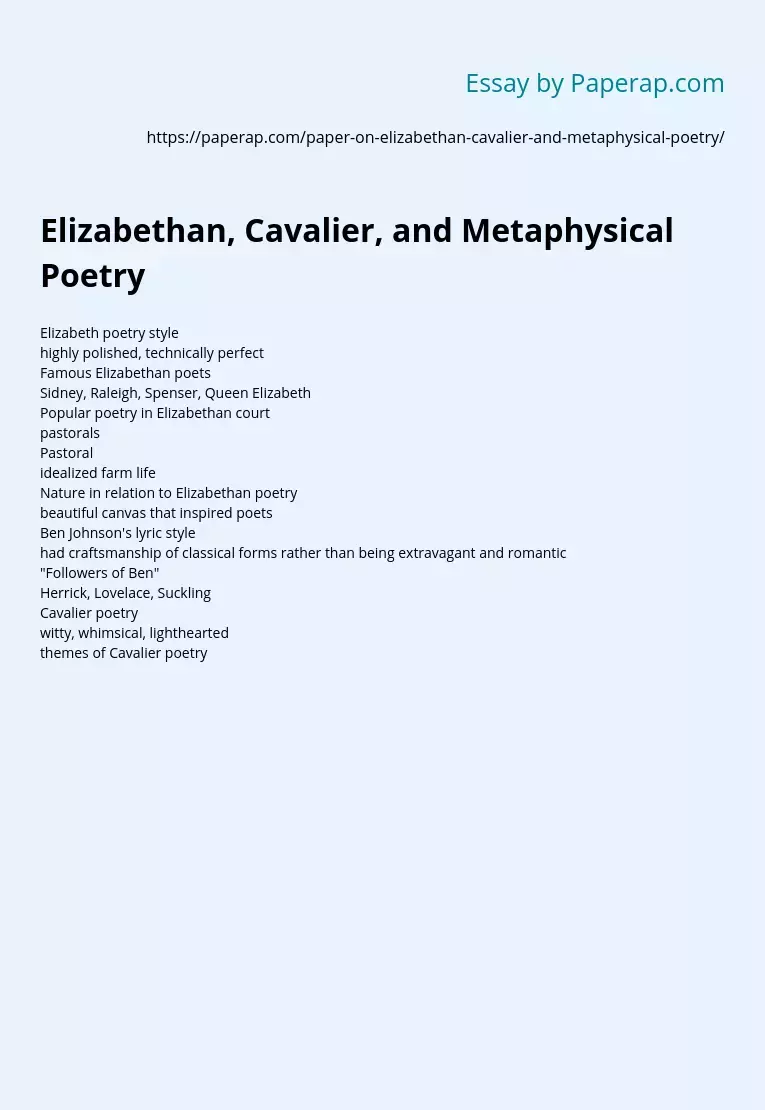Elizabethan, Cavalier, and Metaphysical Poetry
Essay,
Pages 1 (211 words)
Views
78
Elizabeth poetry style
highly polished, technically perfect
Famous Elizabethan poets
Sidney, Raleigh, Spenser, Queen Elizabeth
Popular poetry in Elizabethan court
pastorals
Pastoral
idealized farm life
Nature in relation to Elizabethan poetry
beautiful canvas that inspired poets
Ben Johnson’s lyric style
had craftsmanship of classical forms rather than being extravagant and romantic
“Followers of Ben”
Herrick, Lovelace, Suckling
Cavalier poetry
witty, whimsical, lighthearted
themes of Cavalier poetry
love, war, chivalry, loyalty to throne
carpe diem
“sieze the day,” the philosophy of the Cavaliers
central figure of the metaphysical movement
John Donne
Characterize poems of Donne and his followers
dealt with death, physical love, religion, in logical way; explored complexities and contradictions of life
when metaphysical poetry began
1600s
metaphysical definitions (2)
of or relating to the transcendent or to a reality beyond what is perceptible; abstract or theoretical reasoning
techniques metaphysical poets use
intellect, logic
characteristics of metaphysical poetry
devotional, mystical, intellectual, unconventional imagery, philosophical, a bit irreverent
major metaphysical poets other than John Donne
Marvell, Herbert, Crashaw, and Vaughan
major criticism of metaphysical poetry
used simply to show off intelligence of poet
century T.S. Elliot restored metaphysical poetry’s popularity
20th century
metaphysical conceit
extended metaphor comparing very dissimilar things
how metaphysical conceit is used
to bolster the argument in the poem
Elizabethan, Cavalier, and Metaphysical Poetry. (2018, Jan 17). Retrieved from https://paperap.com/paper-on-elizabethan-cavalier-and-metaphysical-poetry/
